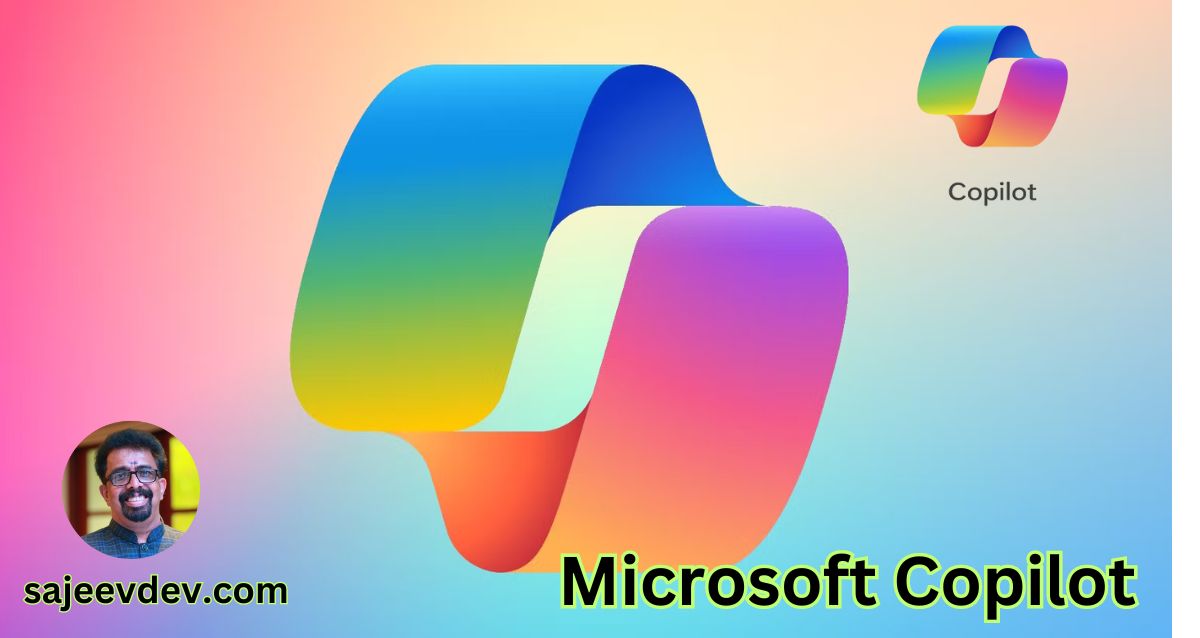Microsoft Copilot
Microsoft Copilot is an innovative artificial intelligence tool that has been seamlessly integrated into the Microsoft 365 suite of applications. Its primary purpose is to provide intelligent assistance to users, thereby enhancing productivity and fostering creativity. As organizations and individuals continue to navigate an increasingly complex digital landscape, the need for efficient tools that empower users has become paramount. Microsoft Copilot is designed to address this need by acting as a virtual assistant that streamlines tasks, enhances information comprehension, and supports decision-making processes.
This AI-powered assistant harnesses the capabilities of large language models to understand user commands and context. By doing so, it is able to deliver relevant suggestions, automate repetitive tasks, and facilitate better communication within teams. Users can engage with Microsoft Copilot across various Microsoft 365 applications, including Word, Excel, PowerPoint, and Teams, thus creating a unified experience that enhances workflow efficiency. The tool’s integration across these applications ensures that employees can leverage AI assistance regardless of their specific tasks or projects.
Moreover, Microsoft Copilot is not just a tool for enhancing productivity; it also serves as a catalyst for creativity. By providing users with data insights, content generation suggestions, and personalized templates, it allows them to explore new ideas and approaches with minimal friction. As businesses increasingly prioritize innovative solutions, Copilot’s ability to unlock creativity through intelligent assistance is a significant asset.
Ultimately, Microsoft Copilot represents a shift towards a more collaborative and productive work environment, enabling users to harness the power of AI to enhance both their workflow and creative potential. Its intelligent design and integration into familiar applications make it a valuable resource for anyone seeking to improve efficiency and innovation in their daily tasks.
How Microsoft Copilot Works
Microsoft Copilot is an advanced AI-driven tool designed to enhance productivity and creativity by leveraging natural language processing (NLP) and machine learning algorithms. At its core, Copilot interprets user inputs, allowing individuals to interact with applications using everyday language. This capability stems from sophisticated NLP techniques that enable the software to ‘understand’ context, detect intent, and recognize nuances in the user’s commands. By translating these commands into actionable tasks, Copilot effectively streamlines workflows.
One of the key components of Copilot’s functionality is its machine learning backbone. This allows the software to learn from previous interactions and adapt to individual user preferences over time. The algorithms employed work continually to improve the accuracy of responses, ensuring that suggestions are not only relevant but also practical within the specific context of the task. As users engage with Copilot, the system curates a personalized experience, drawing from both generalized data and unique user behavior.
Moreover, Copilot seamlessly integrates with various Microsoft applications, such as Word and Excel, amplifying its utility. When a user inputs a query or task—whether drafting a document or analyzing data—the AI evaluates both the information it has and the existing data within the application to propose the most fitting outcomes. This synthesis of user-requested actions and contextual relevance exemplifies how Copilot enhances overall functionality.
As Copilot continually processes feedback, its efficiency increases, thus fostering a more intuitive user experience. By acting as a collaborative partner, Microsoft Copilot empowers users to elevate their productivity and creativity, transforming how tasks are approached and completed across diverse business environments.
Features of Microsoft Copilot
Microsoft Copilot is a multifaceted AI tool designed to significantly enhance user productivity through a variety of cutting-edge features. One of the hallmark capabilities of Copilot is its automated content generation. Users can leverage this feature to create high-quality written materials, such as reports, presentations, or emails, with minimal effort. By utilizing natural language processing, the tool can craft coherent and contextually relevant content, enabling users to focus on strategic tasks rather than manual writing processes.
Another notable feature is its data analysis capabilities. Microsoft Copilot can process large datasets and extract meaningful insights, helping users make informed decisions based on real-time data. This functionality not only streamlines the data analysis process but also reduces the likelihood of human error, allowing for accurate and timely conclusions.
Meeting summaries are also a key component of Microsoft Copilot. The tool can automatically transcribe and summarize meetings, capturing essential points and action items. This feature ensures that all participants have a clear understanding of discussions, which aids in accountability and follow-up activities, ultimately promoting a more organized workflow.
Additionally, Copilot excels in providing personalized task management assistance. By analyzing a user’s habits and preferences, the tool offers tailored recommendations and reminders for tasks, ensuring that users stay on track and meet deadlines. This customization aspect enhances the user’s efficiency, making it easier to prioritize work effectively.
Each of these features not only exemplifies the advanced capabilities of Microsoft Copilot but also illustrates how the tool can contribute to a more productive and creative work environment. By automating routine tasks, analyzing data efficiently, summarizing meetings, and providing personalized guidance, Copilot empowers users to focus on higher-value activities while maximizing their time and resources.
Boosting Productivity with AI
In the modern workplace, efficiency is paramount, and Microsoft Copilot emerges as a transformative tool designed to streamline workflows and enhance productivity. By leveraging advanced artificial intelligence, it assists users by automating repetitive tasks and providing intelligent recommendations, allowing individuals to focus on more impactful aspects of their work.
One notable use case of Microsoft Copilot is in document preparation and editing. Instead of spending hours formatting reports or presentations, users can simply instruct Copilot to apply specific styles or generate content tailored to their requirements. This capability not only saves significant time but also ensures consistency and accuracy across documents, thereby improving the overall quality of work produced.
In project management, teams often face challenges in tracking progress and updating stakeholders. Copilot facilitates this process by analyzing project data and generating comprehensive status updates. By automatically aggregating information and visualizing key metrics, it enables team members to remain aligned on goals and deadlines without the need for tedious manual reporting.
Additionally, Copilot excels in email management, one of the most time-consuming aspects of daily operations. By providing contextual responses and drafting replies based on previous interactions, it dramatically reduces the time spent on email correspondence. This feature not only helps manage inbox clutter but also enhances communication effectiveness, allowing users to maintain professional relationships effortlessly.
Moreover, scheduling meetings and managing calendars can often lead to conflicts and confusion. Copilot simplifies this task by analyzing participants’ availability and suggesting optimal time slots, thus minimizing the back-and-forth communication typically required. This streamlined approach ultimately leads to more productive meetings and ensures efficient use of time.
As organizations increasingly adapt to digital transformation, Microsoft Copilot stands out as a pivotal tool that enhances productivity across various tasks. By harnessing the power of AI, users can achieve a level of efficiency that was previously unattainable, allowing them to focus on creative problem-solving and strategic initiatives that drive value within their organizations.
Unlocking Creativity with Intelligent Assistance
Microsoft Copilot serves as a powerful ally in the pursuit of creativity, leveraging artificial intelligence to inspire, enhance, and streamline the creative process. By integrating seamlessly into familiar applications, it provides users with innovative suggestions and assistance, thus stimulating the imagination and increasing overall productivity. When crafting documents, presentations, or even complex projects, Copilot’s ability to analyze context and produce relevant ideas cannot be overstated.
One of the standout features of Microsoft Copilot is its capacity to suggest diverse formats and styles, tailored to the specific goals of a project. Whether one is drafting a report or creating a visually engaging presentation, the tool offers customized recommendations that can elevate the final output. For instance, it can propose visually appealing layouts for slides or suggest appropriate templates for various types of documents. This creativity enhancement not only saves time but also ensures that the user’s work resonates more effectively with the intended audience.
Moreover, the contextual prompts generated by Copilot serve as a catalyst for creative writing and content creation. Writers can leverage these prompts to explore new angles, develop fresh ideas, or even overcome writer’s block. By harnessing the power of AI, users can delve into brainstorming sessions that are more productive and engaging. The tool encourages experimentation with language and structure, enabling creatives to push their boundaries and uncover unique expressions of their thoughts.
Through its intelligent assistance, Microsoft Copilot unlocks new avenues for creativity, making the process of producing high-quality work both enjoyable and efficient. This integration of AI technology into creative workflows exemplifies how digital tools can empower individuals, allowing them to unleash their full potential without the constraints of traditional methods.
Understanding Information Better Through Conversational Interaction
In today’s data-driven environment, organizations are inundated with vast amounts of information. The ability to comprehend and process this data is crucial for fostering productivity and enhancing decision-making. Microsoft Copilot offers a transformative solution by introducing a conversational interface that simplifies interactions with complex datasets. This innovative approach enables users to engage in a natural dialogue with their data, allowing for a more intuitive understanding of key insights.
The conversational interaction model employed by Microsoft Copilot harnesses the power of artificial intelligence to interpret user queries in plain language. This means that instead of navigating through intricate menus or complex software tools, users can pose questions or request information in a straightforward manner, akin to chatting with a colleague. This user-friendly dynamic is instrumental in demystifying data analytics for individuals who may not possess advanced technical skills.
Furthermore, by prioritizing a chat-like interface, Microsoft Copilot enhances accessibility to information, making it readily available to a broader audience. Users can ask specific questions about trends, forecasts, or anomalies, and receive clear, actionable responses in real time. The AI-driven recommendations provided through Copilot help users discover new patterns or insights they might have overlooked, thus empowering them to make informed decisions swiftly.
Moreover, this interactive format fosters a more engaging learning environment. As users converse with the system, they gain deeper insights into the data’s context and implications. This pedagogical aspect of Microsoft Copilot can help users develop data literacy, which is increasingly vital in a world shaped by analytics. Overall, the integration of conversational interaction through Microsoft Copilot is a significant step towards unlocking the potential of data, equipping users with the tools to navigate the complexities of information with ease and confidence.
Real-World Applications of Microsoft Copilot
Microsoft Copilot has gained traction across various industries, demonstrating its capability to enhance productivity and creativity through its AI-powered functionalities. One pertinent example is in the education sector, where teachers are leveraging Copilot to streamline their lesson planning and administrative tasks. By integrating this tool, educators can generate lesson outlines, quizzes, and reports efficiently, allowing them to focus on delivering quality instruction and engaging students effectively.
In the realm of corporate environments, Microsoft Copilot has been embraced by organizations striving for greater efficiency in their operations. For instance, a major financial services firm adopted Copilot to facilitate data analysis and reporting. The AI-driven tool helped create comprehensive financial reports by pulling relevant data from multiple sources, which not only saved time but also reduced human error significantly. This automation of routine tasks has allowed analysts to concentrate on strategic decision-making, ultimately driving better business outcomes.
Additionally, startups in the technology sector have also found value in Microsoft Copilot’s capabilities. These companies utilize the tool to assist in marketing efforts, where it aids in generating content ideas for social media campaigns and drafting engaging newsletters. By streamlining content creation, startups can maximize their marketing reach while minimizing the time spent on repetitive tasks. The adaptability of Copilot across sectors showcases its potential to reshape traditional workflows, fostering a culture of innovation and efficiency.
Moreover, the healthcare industry has begun to integrate Microsoft Copilot as well, primarily for managing patient records and documentation. Practitioners are finding that this AI tool significantly enhances their ability to maintain accurate records, thus improving overall patient care. The diverse application of Microsoft Copilot across various industries highlights its transformative potential in modern organizational processes, establishing it as a valuable asset in today’s fast-paced business landscape.
Challenges and Limitations of Microsoft Copilot
While Microsoft Copilot offers substantial benefits in enhancing productivity and creativity, it is essential to recognize the challenges and limitations associated with its use. One significant concern is the potential for users to develop a dependency on the software. As individuals increasingly rely on AI to assist with various tasks, there is a risk that critical thinking and problem-solving skills may decline. This reliance could lead to a diminished capacity for independent decision-making, making it crucial for users to maintain a balance between utilizing AI assistance and exercising personal judgment.
Data privacy is another critical issue surrounding the deployment of Microsoft Copilot. As the software processes and analyzes user data to deliver tailored suggestions, users may be understandably apprehensive regarding the security of their sensitive information. Ensuring that data is handled responsibly and in compliance with regulations is vital for maintaining trust in AI technologies. Organizations must establish clear data governance policies while raising awareness about the potential risks associated with the use of AI-powered tools.
Additionally, there are instances where AI-generated suggestions may not align with user expectations or requirements. Microsoft Copilot, while sophisticated, is not infallible and may produce recommendations that are contextually inappropriate or suboptimal for specific scenarios. This underscores the importance of human oversight, as users must critically evaluate AI-generated content to ensure it meets their needs. By combining AI assistance with human intuition and experience, professionals can harness the potential of Microsoft Copilot while mitigating its challenges.
The Future of Microsoft Copilot and AI in Productivity Tools
As technology continues to evolve at an unprecedented pace, the future of Microsoft Copilot and similar AI-powered productivity tools holds tremendous potential. One of the primary areas anticipated for advancement is the understanding and capabilities of AI systems. With ongoing developments in natural language processing and machine learning algorithms, future iterations of Microsoft Copilot are expected to offer even deeper contextual understanding, allowing for more intuitive interactions between users and the software. This enhancement will empower users to accomplish tasks with greater ease, thereby increasing overall productivity.
Moreover, user interface improvements are also expected to play a crucial role. As AI-driven tools become more sophisticated, it’s imperative that their interfaces remain user-friendly. The integration of AI should lead to a more seamless experience, where Copilot can intuitively suggest actions and optimally display relevant information without overwhelming the user. Such enhancements could include customizable dashboards and context-aware suggestions that not only meet user needs but also promote engagement and creativity.
Additionally, the expanding scope of applications for Microsoft Copilot indicates a bright future for AI in various fields. While currently significant in business settings, we can anticipate an increase in its adoption across creative industries, educational environments, and project management platforms. By enhancing collaboration capabilities among users through smart suggestions and real-time co-authoring practices, Microsoft Copilot could foster creativity and innovation. It also presents the opportunity to assist professionals in specialized fields, such as healthcare and engineering, by streamlining complex processes and significantly reducing the time required for project completion.
In conclusion, Microsoft Copilot and other AI-powered productivity tools are poised for transformative advancements. The convergence of improved AI understanding, refined user interfaces, and an extensive range of applications will undoubtedly redefine how users interact with their work, paving the way for significant enhancements in productivity and creativity.









